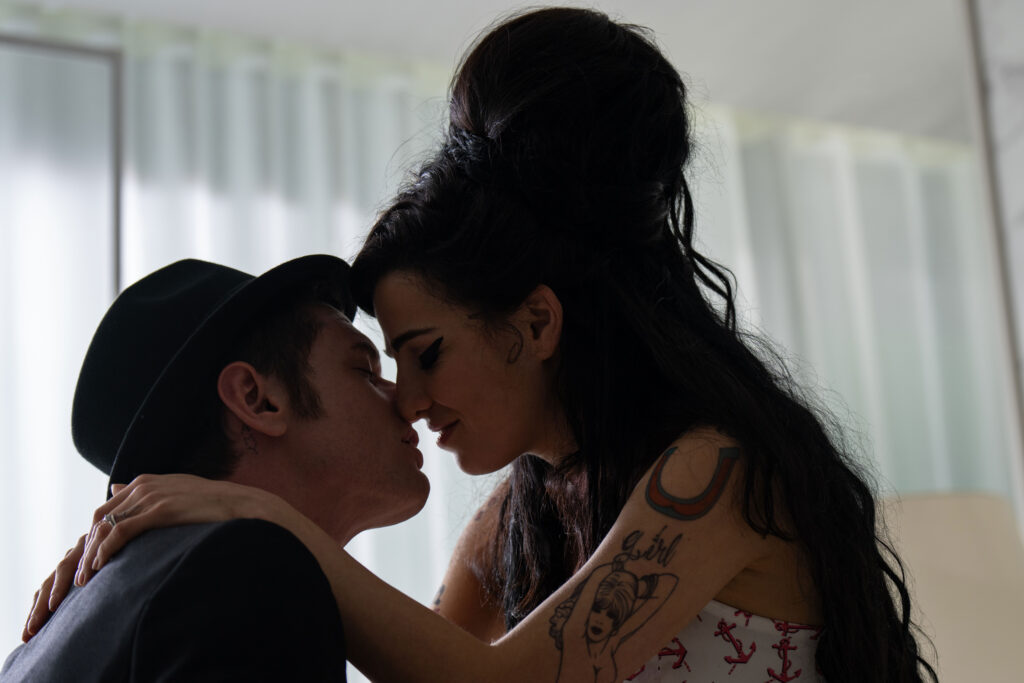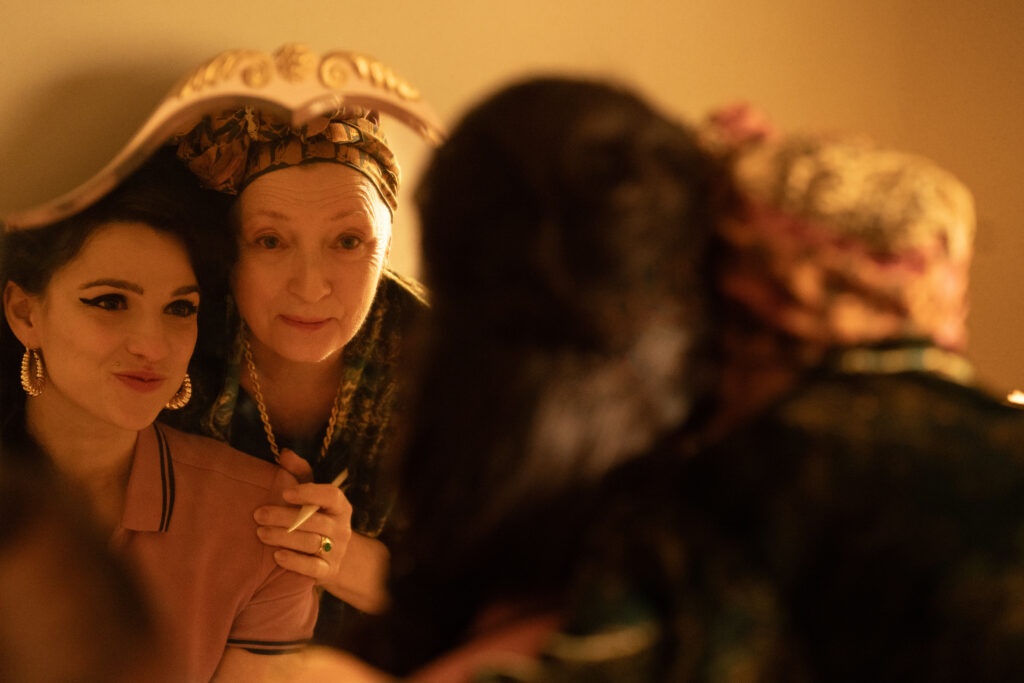By Kirsten Coachman
The continued influx of music biopics throughout the past decade has not deterred filmmakers from contributing to what feels like an overstuffed cinematic genre. Now, with Sam Taylor-Johnson’s “Back to Black,” the new film centered on R&B/soul/jazz singer-songwriter Amy Winehouse (played by Marisa Abela), there’s just cause to finally pump the brakes.
“Back to Black” doesn’t focus on the creation of one of the most critically acclaimed best-selling albums by a female artist of all time; instead, it turns its attention to the inspiration for the album—Winehouse’s tumultuous relationship with Blake Fielder-Civil (played by Jack O’Connell). That’s all fine and well; it’s an interesting way into the album and this part of Winehouse’s story. But, following incessant media coverage back in the aughts, it still begs the question—why did anyone find this film necessary to make?

Most casual music fans are aware of the tragic story of Winehouse, who passed away on July 23, 2011, at the age of 27 due to alcohol poisoning. Heading into the film with the knowledge that there isn’t a happy ending lying ahead evokes a certain kind of sadness when watching a depiction of a singer’s life cut far too short.
“Back to Black” picks up Winehouse’s story shortly before the eventual Grammy winner signs a deal with Island Records, declaring to her soon-to-be manager, “I ain’t no f—ing Spice Girl,” while at home in London. Though her parents’ fractured relationship negatively impacts the singer, we see the close relationship with her Nan, Cynthia (Lesley Manville), who is Winehouse’s biggest supporter. In the film, Nan serves as a style icon of sorts for her granddaughter, who adopts a beehive as part of her signature look before heading off to record the album that would make her known across the globe.
Following the success of “Frank,” Winehouse’s record label is eager for her to get back in the studio to create an album that could cross over the U.S. She abruptly leaves a meeting with her label to go “live her songs.” She heads to a local pub, where she meets an overly charming Fielder-Civil that very same afternoon. On one hand, the scene establishes their immediate chemistry. Still, writer Matt Greenhalgh’s creative license is clearly at work to make these two characters cross paths at a pivotal point in Winehouse’s life and career. Even with Winehouse’s early success moving quickly through the beginning of the film, this extended pub meet-cute comes across as far too convenient on screen.

Winehouse is smitten, and she and Fielder-Civil jump into an intense and fraught relationship that brings their individual vices to the forefront—Winehouse drinks and smokes weed, while Fielder-Civil drinks and takes hard drugs. Winehouse’s alcohol intake is brought up throughout the film, but what isn’t made clear is her jump from smoking weed to smoking heroin. She tells Fielder-Civil early on that “drugs are for mugs,” yet she inexplicably winds up following in his shoes while they’re apart from one another. The lack of clarity in her change of heart regarding hard drugs in the film borders on gaslighting the audience instead of depicting Fielder-Civil’s influence. It’s not news that Winehouse had addiction struggles, but the film almost goes out of its way to shame their version of her.
As Winehouse, Abela was cast in an impossible role. How could she approach embodying the singer yet put her own stamp on the performance? Her performance is an interpretation of Winehouse; she presents a certain essence of the singer but never fully has Winehouse in her grasp, which comes through in the performance set pieces. Her voice—speaking and singing—is passable, at best, but Abela doesn’t quite capture the singer’s distinctive vocal affect and tone.
Among the performances revisited in the film are the Glastonbury Festival and the Grammys. When Winehouse performed, she was in her element: raw and dancing to a beat of her own. Abela is a tad too polished onscreen, especially during the Grammys performance of “Rehab.”

The film recreated a moment at the Glastonbury Festival when Winehouse shared with the massive crowd of festivalgoers that her husband was getting out of jail soon, which was met with some boos. After calling them out, in real life, she launched into “Back to Black.” The film opts to rehash a messier moment of Winehouse’s set, “Me & Mr. Jones,” where the singer goes down to the barrier in front of the stage and stumbles around while singing to the crowd. It feels like the filmmaker’s way of asking viewers, “Remember what a total mess she was?”
Director of Photography Polly Morgan’s camera work may be the film’s one saving grace. She captured Winehouse’s world in colors that spoke to her old soul sensibilities. And while Abela doesn’t particularly look like Winehouse—the hair, black eyeliner, and Monroe piercing only do so much—during a scene between Winehouse and her father at Ronnie’s, a local pub, Morgan films the actress in a manner that, for brief moments, she looks exactly like the late singer.
That said, dragging Winehouse’s well-reported demons back out onto the big screen in a hyper-fictionalized manner more than a decade after her death is cruel—both to the singer and her fanbase. Amy Winehouse and her music deserve to be celebrated in memory, and “Back to Black” is an utter disservice to her musical legacy.
“Back to Black” is now playing in theaters.
